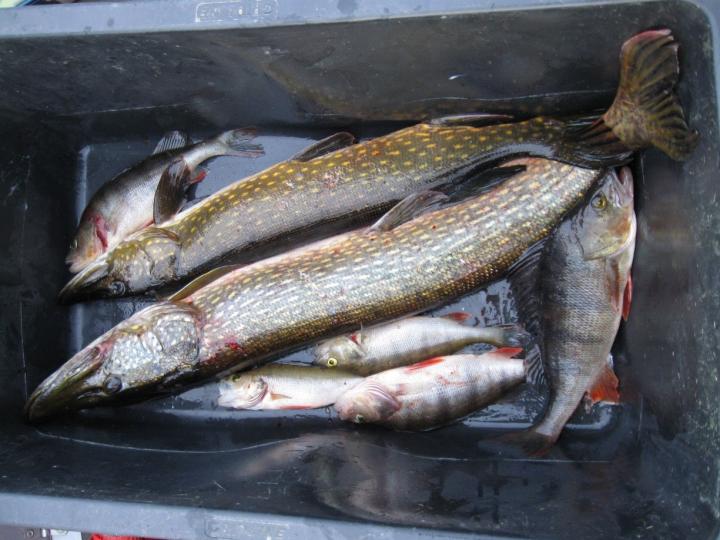Recent studies show that, in the future, the mercury concentration of fish in Finnish Lapland can shift closer to the level found in lakes located below the Arctic Circle. According to researchers, mercury content should be increasingly carefully investigated and monitored in fish and food webs, as the climate and land use change.
Mercury is a heavy metal found in nature. Methylmercury, a particularly toxic form of the metal, accumulates in fish and is biomagnified in food webs. Humans are exposed to methylmercury especially through fish-based diets.
Researchers investigated the joint effects of the climate and land use in Finnish Lapland. Intense land use, a warmer climate and increased precipitation increase the leaching of nutrients and carbon-bound mercury stored in the soil into waterways. The use of fossil fuels has also increased mercury levels in the environment.
“Lapland is an important subject of research, since temperatures, precipitation and nutrient levels grow significantly when we move from the almost pristine lakes in the north towards the southern lakes which are more eutrophic and murkier. At the same time, land use in catchment areas is moving from reindeer herding to intensive forestry. Our research area has no direct sources of mercury emissions. Instead, the mercury found in the region originates in long-range atmospheric deposition and leaching from the catchment area soil,” says Professor of Environmental Research Kimmo Kahilainen from the University of Helsinki’s Lammi Biological Station.
The researchers found that the warmer and murkier the lake, the higher the mercury concentration in algae. This was reflected in the fish as well. Mercury content in vendace and roach living in warmer and eutrophic lakes was slightly higher compared to those living in pristine lakes, while the mercury content of perch and pike grew markedly.
“Global warming and increasing precipitation, together with intensifying land use, increase leaching from catchment areas. In the future, mercury content in Lappish fish can indeed shift closer to the level found in subarctic lakes. As the climate and land use change, mercury concentration in fish and food webs should be increasingly carefully investigated and monitored,” Kahilainen says.
###
This study was made available online in March 2021 ahead of final publication in issue on July 20, 2021.
Media Contact
Kimmo Kahilainen
[email protected]
Original Source
https:/
Related Journal Article
http://dx.





